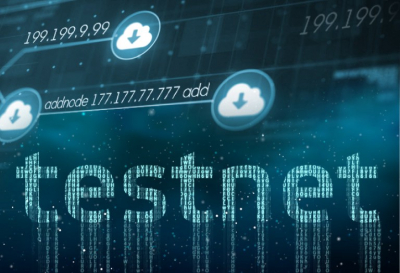
TLDR:
- For cryptocurrencies to succeed as an alternative to the traditional financial world, it must be possible to replicate common processes, including financing of existing or new projects.
- ISPO is a unique form of financing for new projects that use the functionality of staking. Instead of directly exchanging ADA coins for project tokens, investors sacrifice their staking rewards to get tokens.
- ISPO has a direct impact on network decentralization. Small pools can suffer from leaving of delegates.
- We can imagine a team working on a project or supporting the Cardano community without selling tokens.
How project finance works in the traditional world
The owner of a private company may find himself in a situation where he needs additional funds to expand his business. In the traditional world of finance, there is a process called an Initial Public Offering (IPO). The company can raise funds by offering shares to the public or to new investors. Following the IPO, the company is listed on the stock exchange. While coming with an IPO, the company has to file a sort of offer document with the market regulator. The offer document contains all relevant information about the company, its promoters, its projects, financial details, the object of raising the money, terms of the issue, etc.
After the sale of the shares, the owner receives funds for expanding the business, but the company is now owned not only by him but by all shareholders. If the company generates a profit, a part of it can be distributed proportionally to all owners on the basis of the offer document. The original owner may give up part of his decision-making rights. The process can vary based on jurisdiction and is usually heavily regulated and supervised.
Let’s add that purchasing shares in an IPO can be difficult as the first offering of lucrative companies is usually reserved for large investors, such as hedge funds and banks. Common investors can purchase shares of a newly IPO-ed company fairly quickly after the IPO.
The more well-known and successful a company is, the more likely it is to raise more capital, as there will be more demand for its shares. Small companies or startups have a much more difficult situation and may not receive financing.
Fundraising in a decentralized world
The basic idea of fundraising is that people invest their money and buy a stake in a company. The stake can be in the form of shares in the traditional world of finance or tokens in the decentralized world. In both cases, investors believe that the project will thrive and that it will be economically worthwhile for them to hold a stake in the long run. In other words, they are taking a risk and expecting a profit in return.
For cryptocurrencies to succeed as an alternative to the traditional financial world, it must be possible to replicate common processes, including financing of existing or new projects. Tokenisation and smart contracts have become the basis for the financing of projects, and ICO (Initial Coin Offering) mania has emerged from these technological innovations. People could buy tokens of new projects with other digital coins, mostly ETH and BTC.
ICO mania ended in failure. Many projects failed to deliver and people lost their money. What caused this? Most projects were a scam from the start, many underestimated the difficulty of implementing their ideas. The general problem was the low scalability of the platforms. If a team managed to deliver the protocol or application they promised, they were met with disinterest in using it because of the long bear market and people’s reluctance to care about anything with a decentralization label.
Fundraising is conceptually sound. In the traditional world, it has worked relatively long and reliably. In a decentralized world, implementation failed because it was easy to cheat. There was a lack of regulation and oversight. The ICO concept was naive from the start because it allowed teams to promise the impossible, collect the money and get out. The tokens sold by the teams did not have the same characteristics as the shares. They gave no rights or guarantees to the buyers. The value and use of the tokens were often dubious. Teams often had no reputation, members hid their real identities, and were not held accountable for failures.
In a regulated environment, it is hard to cheat because it is easy to punish mistakes and fraud. If the decentralized world is to survive without authorities and regulations, it needs to come up with concepts that work. Teams must be able to raise finance, but at the same time, investor protection must be ensured.
The team must feel committed and motivated to deliver the project. If the project fails, it should be possible to return some of the funds raised to the investors. Alternatively, it should be possible to lock the funds raised into a smart contract and then vote on the next release of funds on a regular basis based on the progress of the project.
We believe that more functional concepts will emerge over time. It is possible that regulations will be imposed on cryptocurrencies of such a nature that it will be necessary to work with the real identities of team members. This would greatly simplify fundraising on the blockchain as it would preserve the benefits of decentralization while leveraging the existing legal system. Yet we believe it would be more beneficial for a decentralized world to dispense with regulation altogether and deal with problems through technology. However, it is possible that regulations will be faster than the development of the necessary technologies.
Let’s now take a look at the ISPO.
What is ISPO
ISPO stands for Initial Stake Pool Offering. This is a unique form of financing for new projects that use the functionality of staking. Instead of directly exchanging ADA coins for project tokens, investors sacrifice their staking rewards. The team sets up its own staking pool (or more of them) and invites investors to delegate their ADA coins to it. They often set the pool fees at 100%. The team earns ADA rewards, and then proportionally distributes tokens to all delegates. To do this, they use on-chain data and basically airdrop tokens.
If investors are interested in backing a project and receiving its tokens, they simply delegate ADA coins to a pool established by the team. There is no need to send ADA coins anywhere. This makes it relatively easy to support the project.
Notice a few things. Investors always keep their own ADA coins in their wallets and do not lose them. They are sacrificing, and thus essentially investing, only the ADA coins they would have earned from rewards. The difference between buying tokens directly with ADA coins and this form is only mental. Investors feel that they will not spend the ADA coins they have purchased and may think that the risk of investing is somewhat lower. In other words, they may feel that they are investing coins that are distributed by the Cardano network on rewards, even though rewards would technically be their ADA coins.
ISPO is a slower form of fundraising as it can take several epochs depending on how many ADA coins the team wishes to collect and the interest in the tokens. The Cardano epoch lasts 5 days. The Cardano ecosystem works with the concept of pool saturation, meaning that the total pool stake is ideally around 65M ADA coins. With the pool fully saturated and the fees set to 100%, the pool generates approximately 40,000 ADA coins every epoch. In a year, this would be almost 3M ADA coins.
Let’s take an example. If a team had 3 fully saturated pools with 100% fees and fundraising lasted 30 epochs (5 months), the maximum amount of ADA coins a team could earn would be approximately the following.
3 * 40,000 * 30 = 3,600,000 ADA
Volatility is a big enemy of business and the market value of ADA coins can change rapidly. 50,000 ADA coins can be worth $25,000 at $0.5 per ADA coin, or easily $100,000 at $2 per ADA coin. These are big differences and the team has to take that into account.
The team doesn’t have to set the fees at 100% and can set them lower, for example only 50%. This means that part of the fees will go to the team as the pool operator, and part will go to the delegates. So the investors are sort of investing only part of the rewards and can feel more comfortable.
It is entirely up to the team what strategy they choose and how quickly they need to collect ADA coins. Investors can always delegate to another pool at any time, essentially expressing a loss of interest and tokens. ADA coins are not locked during staking, so users can always use them for something else. When the Cardano protocol takes snapshots between epochs, only as many coins as are currently in the wallet are considered staked.
We can imagine a strategy where the team will want to raise funds as quickly as possible. This would give them confidence for the future that they have secured funding. On the other hand, it is possible to secure ongoing funding for a year or more. The team would have to report continuously on the progress of the project and the investors could decide if they are still interested in supporting the project. This format seems to us to be fairer for the honest teams. On the other hand, it may be that another project catches the attention of investors and they delegate ADA coins elsewhere. Or a bear market can come and it may influence investor decision-making. Delegates can change their delegation at any time, which is a risk from the team’s point of view.
It may not be easy for teams to catch the attention of delegates and keep it for a longer period. Multiple competing projects may arise at the same time, and pool operators are also trying to get delegates. Teams need to have good marketing and prove that it makes sense to support them.
Let’s add that once the ISPO is over, delegates can delegate ADA coins to another pool. The question is whether teams will let the pools run on. If they do, they should reduce the fee ideally to 0% so that delegates get the full rewards.
If a team only wants to distribute tokens (airdrop) and has secured funding in another way (e.g via Catalyst), they can support any pool. It is possible to publicly declare that tokens will be distributed to people who delegate to selected pools at specific epochs. In this way, single pool operators can be supported.
Side effects of ISPO
ISPO combines project financing and staking. Obviously, this will have several side effects.
Each pool operator tries to attract delegates to their pool. If people decide to leave the pool and delegate elsewhere to invest in a project, it will affect those operators who just wanted to run the pool and not work on another project. ISPO can negatively affect especially small pools for which the departure of delegates can be critical.
ISPO has a direct impact on network decentralization and the question is whether this is positive or negative. New projects may attract the attention of investors and, in the process of fundraising, gain temporary power in the network consensus. The team will usually run multiple pools, so there is some form of centralization that can be gained relatively quickly. This is not dangerous for the network as a whole, as the ADA coins are still in the hands of the delegates. If the pools don’t produce blocks, they won’t get rewarded and the delegates would quickly leave the pools. However, with respect to the current pools, it would be more beneficial for the network if teams ran fewer pools for longer periods of time.
There is a catch, though. It may be that pools quickly become saturated and not all investors are satisfied. They would like to participate in ISPO but it is not obviously possible when all pools are saturated. Teams cannot control the number of delegates or the number of coins an individual can delegate. So when there is a lot of interest in tokens, the only solution is to add another pool.
An alternative would be to combine ISPO with token sales. Some of those interested in investing in the project would buy tokens directly and some would go the ISPO route. We are sure there are investors who won’t like ISPO and would rather buy tokens directly.
It’s good that ADA coins are shifting in the ecosystem and people are thinking about what pool or project to support. However, this should not have a negative effect on single pool operators and small pools. It would be beneficial to tweak ISPO so that it supports decentralization, not the other way around.
The future of ISPO
ISPO is rapidly growing in popularity, but in our view, investing through sacrificing ADA rewards is not an ideal solution in terms of impact on existing pools. The lower flexibility and the need to spin up another pool in case of higher interest in tokens can be considered a disadvantage.
We don’t mean to say that ISPO is necessarily a bad concept. Cardano makes ISPO possible by allowing users freedom over ADA coins even during staking. ISPO needs improvements, though. We would like it if delegates could stay with their pool, but could set up the delegation in such a way that part of the rewards should automatically move to another address. This would be the address of the team that wants to raise funding.
However, this reasoning leads us to wonder why investors don’t simply buy tokens of the selected project themselves for staking rewards periodically every epoch. The biggest advantage we see with ISPO is that the process of fundraising takes a longer period of time in which the team can prove to investors that they are on track with the delivery of the project. This brings us back to the biggest problem of blockchain investing which is investor protection.
IPOs work best when the company is well established in the market and has a track record of success. There will be a lot of interest in such shares. The whole blockchain industry is still in its infancy, so it is natural that teams are mainly coming up with ideas for project execution. Individual teams can only gain a good reputation after they have successfully delivered a project. The problem is that project development is costly and teams need to have funding in place from the start. Ideally with some positive future prospects. Investors often take a big risk.
Probably the only solution in a decentralized world is a system that allows rewards to be released to the team gradually. Each investor should be able to get back part of the invested funds if he is not satisfied with the presented progress of the project. This problem is essentially not solved by ISPO.
At this stage, we do not see ISPO as a final solution for safe investing in a decentralized world.
Involving staking in team support
We can imagine a team working on a project or supporting the Cardano community without selling tokens. Many pool operators do a good job for the community and are grateful for their delegates. Stakeholders should delegate their ADA coins with the decentralization of the network in mind, but at the same time, they should think about the development of the ecosystem. Ideally, they should align these two interests together. Delegating ADA coins with the highest possible profit in mind is not the best decision from a long-term ecosystem perspective.
Teams could announce to the community that the development of a certain project will take approximately a year. If the community wanted to fund the project, they would delegate ADA coins to the project pool. The pool would have set fees appropriately to the needs. It wouldn’t necessarily have to be 100%. It would depend on what the cost of development is in that geographic location. If the fees were set at say 30%, that might be enough for a team or individual to work on the project. Delegates would still receive satisfactory staking rewards.
Note that this form of team support would not attract the attention of regulators. Projects would not need any tokens and support would be built primarily on long-term trust. It would actually be a similar approach to regular donations to the project, only more stable.
Staking could perhaps be involved in the operation of a decentralized service. For example, delegates could use the service for free. This could provide funding for existing services or be a reward for the team that has delivered the project.
We don’t want to give the impression that tokens have no meaning. Investors expect the value of tokens to grow faster than the value of ADA coins. Therefore, they are willing to take some risk for potentially more profit. In addition, coins can play an important role in project governance. As we wrote above, a decentralized world must be able to replicate mainstream financial services. In this case, stocks.
People should not automatically think of tokens as shares and should consider their meaning carefully. Teams should be transparent about tokens and their use. ISPO is basically just a form of getting tokens for ADA coins. The form in which tokens are acquired does not affect their meaning.
Conclusion
We are certainly glad that the ISPO concept has appeared. There is a lot of trial and error in the cryptocurrency industry every day. Every step in the wrong direction helps show us the right way. ISPO is likely to be around for a while and many projects will use it to get funding. It is good to think about the impact ISPO has on the decentralization of the network and how this certainly interesting concept could be improved.
 What is the Cardano testnet for?
What is the Cardano testnet for? Who will maintain Cardano
Who will maintain Cardano What does it mean for Cardano to be a platform?
What does it mean for Cardano to be a platform? Myth-busting: the physical world is not a problem for Cardano
Myth-busting: the physical world is not a problem for Cardano